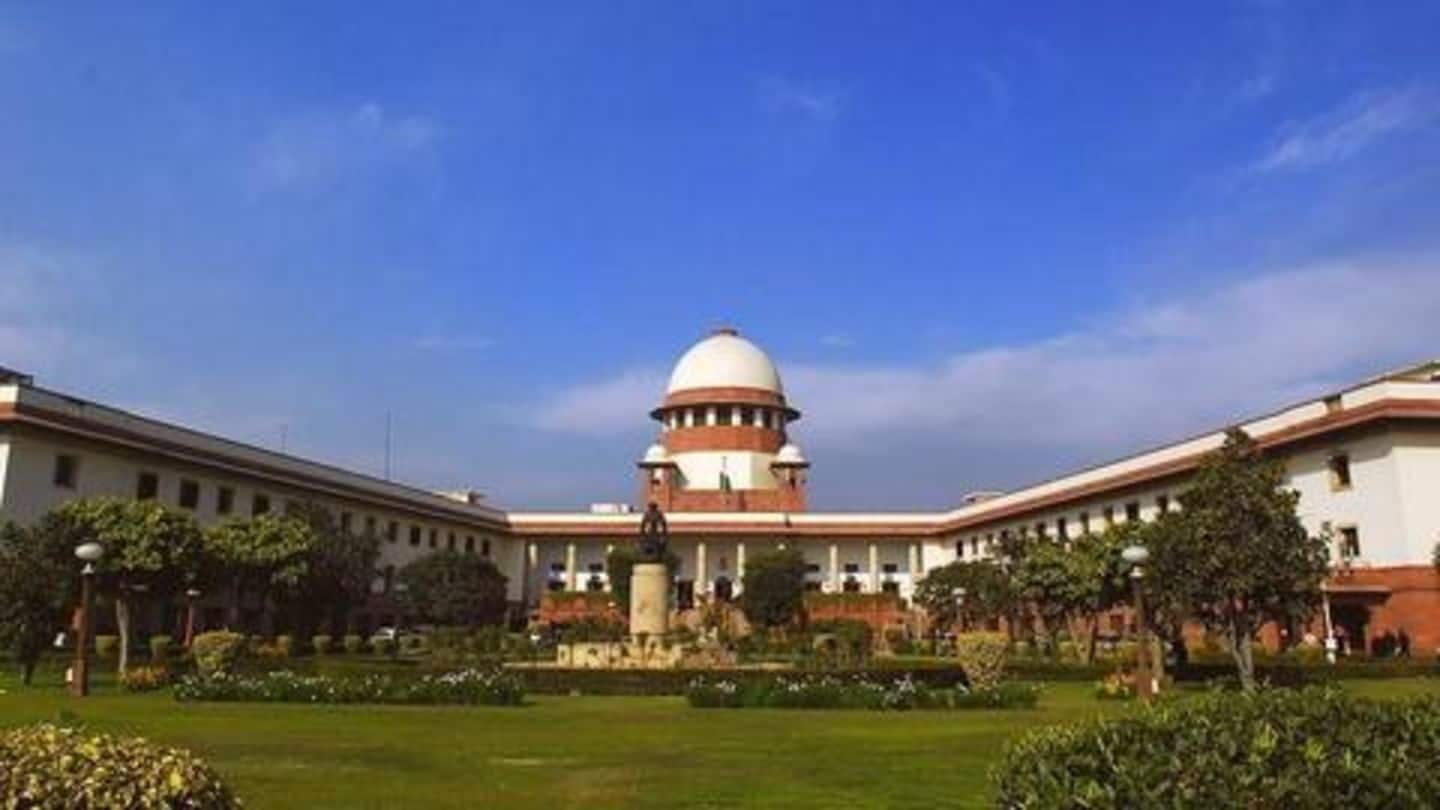
Re-opening probe into Mahatma Gandhi's death a futile exercise: SC
What's the story
Nearly 70 years after the assassination of Mahatma Gandhi, the Supreme Court on Wednesday put at rest an attempt to reopen the investigation into it, saying it would be "an exercise in futility". The apex court also declined to look into the correctness or fairness of the findings of the Kapur Commission set up to inquire into the conspiracy to assassinate Gandhiji. Here's more.
Court's order
A futile exercise that would nonetheless pan new controversies
The court said, "it would be another exercise in futility and would nonetheless pan new fires of controversy." A bench of justices said, "we see no merit in this SLP and hereby dismiss the same". A five-page court order said, "This Court must at all cost be wary of such contentious issues and must not allow its jurisdiction to be invoked for such purposes."
The petitioner
Petitioner moved court after doing some research
The apex court said the delay with which the petitioner has raised this issue was "gross" and rejected the contentions of Mumbai-based researcher Pankaj Phadnis, who is a trustee of the Abhinav Bharat charitable trust, on whether the four bullets were fired, as also whether the Kapur Commission Report should be reopened after 46 years. The petitioner had apparently moved the court after research.
Gandhiji's assassination
Petitioner researched about circumstances in which Gandhiji's assassination took place
The petitioner said he had researched about "the circumstances in which Gandhiji's assassination took place and got convinced about the involvement of an unseen hand in the assassination". "We are, however, not satisfied that new research into a long-concluded matter justifies a re-initiation of a criminal investigation or that anything that might be stated should be allowed to reopen a case," the bench said.
Law
No provision in the law for review in such cases
The court said criminal cases resulting in the conviction, execution of death sentences and the demise of those who have served life sentences, ought not to be reviewed, adding, "Neither is there a provision in the law for a review." It agreed with Phadnis' contention that Gandhi's assassination was an event of far-reaching consequences and the nation had the right to know the truth.
Quote
Truth is already well known: SC
"Such a right cannot be invoked where the truth is already well known, merely because some academic research raises a different perspective in law. This would amount to reopening issues based on hearsay," the SC bench said.
Kapur Commission findings
Phadnis also sought review of the Kapur Commission findings
The court also dealt with the submission made by Phadnis that the SC should review the Kapur Commission findings. The bench said the commission headed by former apex court Judge Jivanlal Kapur was set up after GV Ketkar, grandson of Lokmanya Balgangadhar Tilak, made a statement that he had knowledge about the conspiracy to assassinate Mahatma Gandhi prior to the incident.
The process
Deeply grateful to the court for starting the process: Phadnis
Phadnis argued that findings of Kapur Commission were "unfair since it hurts the sentiments of the followers" of Vinayak Damodar Savarkar. Later reacting to the apex court verdict, Phadnis said in a statement that he was deeply grateful to the court for starting the "process of removing the web of lies and deceit around the murder of Mahatma Gandhi."
Unfair findings
Findings of the Kapur Commission unfair: Senior Advocate
Senior advocate Amrendra Saran, appointed as amicus curiae by the apex court to assist in the matter, submitted in his report that the Kapur Commission's finding was rendered after the demise of Savarkar and no opportunity was given to Savarkar or any of his representatives. He also submitted that the finding was unfair since Savarkar had been acquitted at the trial.
The bullet theory
Godse convicted on the basis of evidences of eye-witnesses: Court
With regard to the four bullet theory, the bench said Godse was convicted on the basis of the evidence of eye-witnesses who were present at the prayer meeting which was attended by innumerable people. It rejected the four bullet theory of Phadnis and said that each one of the eye-witnesses had described how Godse moved forward and shot Gandhiji.
Quote
There were three bullet wounds on Gandhi
The court said even the death report mentioned three bullet wounds -- one injury on the right side of the chest near the nipple, one injury below the chest on the right side and one injury on the right side of the abdomen.
Details
Gandhi was assassinated on January 30, 1948
The bench said there were six eyewitnesses and each one of them mentioned that three shots were fired by the sole assailant, Nathuram Godse. Gandhi was assassinated on January 30, 1948; nine accused were tried for the conspiracy and the murder. The trial court on February 10, 1949, convicted seven accused and acquitted one. Accused Godse and Narayan Apte were given the death sentence.